Most workshops are offered at both the morning and afternoon sessions. Those offered at only one session are indicated.
#1 Family Stories by Denise Bennett
How stories can enrich family life, help create family rituals and traditions, and play a role in nurturing faith. Learn how to find your own stories and learn techniques for “interviewing” other family members to find their stories too. Denise Bennett is Chaplain/Educator at The Hermitage in Richmond, a published poet & songwriter, and a professional storyteller & musician. An M. Div. graduate of Union-PSCE, she performs and teaches at professional conferences, in schools, churches, libraries and retirement communities. She is a long-time member of TellTale Hearts, a Richmond performing group, and appears regularly at storytelling festivals.
#2 Kids Living Their Faith by Beth Christian
From Pre-school to Pre-teen, children of all ages can make a difference in this world. We will look at hands-on mission ideas that kids can do. It is also fun and important for families to serve together. We will talk about ways that families can work side by side and how your church can creatively offer events and ministry that is mission-focused. Beth Christian is in her 10th year as Director of Children’s Ministries at Woodlake UMC. She also serves in the Virginia UMC Conference in many different roles. Beth is always looking for new ideas to bring to ministry and to help children to know, love, serve and share Jesus.
#3 The Faithwalk by Geraldine Berry Johnson
At Home, At Church, At School, At Work!!! How visible is your faith?!! Remember, the only Christ some people will see is the Christ that’s in you! Geraldine Berry Johnson is the Founder/Director of St. James’s Children’s Center (the first pre- school in the metropolitan area to introduce inclusiveness: the acceptance of children with learn- ing, emotional and physical challenges in a traditional setting. She received her Bachelor of Science in Special Education from Virginia State College, her Masters Degree from Virginia Commonwealth University, and her Bachelor of Science in Christian Theology from Virginia Bible College. She has received several awards for her contributions to children and the community.
#4 Social by Nature: How to Approach Technology Today by Jon Messer & Sammy Frame (AM only)
Technology, in particular social media, has inundated our society. Families are on Facebook, Twitter, texting and other forms of electronic communication. What is the family’s role in this technology? What are the advantages for families? How should families connect? What is the role of the church? Jon Messer is an academic technology consultant for the University of Richmond and a Ph.D. student at the College of William and Mary studying Curriculum and Educational Technology. He has worked in the church as children’s minister, education minister and family ministry consultant. He also created a children’s magazine to help families learn about Baptist heritage.
#5 Social by Nature—- but What About Nurture? By Jon Messer & Sammy Frame (PM only)
Online all the time could be the motto of the family today but at what cost? How is social media impacting families? Do social media and mobile devices enhance our connections as family or have they become a liability? What, if any, impact do these social technologies have on our re- lationships with our kids and parents? Do spiritual (and biblical) notions like solitude, study, and assembly have a place in our increasingly virtual world? Sammy Frame is small groups pastor at Powhatan Community Church where he creates and implements strategies to help people do life in small groups. He also leads a 7-9th grade small group for boys where he learns firsthand the impact of technology on our youth.
#6 And What About the Caregivers? Equipping Adults to Be Faith Formers by Marilyn Sharpe (AM only)
The Bible tells us often that it was God’s idea to make faith formation a robust part of everyday life, done most powerfully by those primary caregivers for all of God’s children. When we baptize children, we in the congregation promise to surround and support not just the child, but those who will raise the child. Research tells us that ministry to children & youth is most powerful when it partners home AND congregation … but most of us have no idea how to do that. How can we give youth both a Christian peer subculture AND a family that is close, supportive, faith-filled & fun? Marilyn Sharpe is our Keynote Presenter.
#7 Engaging Adults in Meaningful Bible Study by Emerson Shelton
This workshop will offer tools for teachers to help their adult students better understand scripture and its relevance to their lives as Christians today. Emerson Shelton is a retired pastor in the United Methodist Church. Now at Welborne United Methodist Church, he is still often asked to lead classes for adults.
#8 Using Music & the Arts in Christian Education by Sandy Shelton
Come experience a mini “EXULTA” session where Sandy and other staff members will lead participants though a Bible lesson, choir, and two choices from a violin lesson, a ballet lesson or an art lesson. Sandy Shelton is a retired Christian educator in the United Methodist Church. She is a part of the staff of the EXULTA (“Experience Ultimate Love Through The Arts) Fine Arts Academy for elementary-aged children at Welborne United Methodist Church.
#9 Praise God by Protecting His Gifts by Harriet Thomas (AM only)
This workshop will help members learn new ways to be a better guardian of God’s Creation. We need to be supporters of the environment. There are alarming new statistics about the state of our earth. Discover simple ways to protect God’s Creation and experience a hands-on activity. Harriet Thomas has a lifelong interest in the natural environment and preserving what God has given us. Educated at James Madison University, University of Virginia, University of Edinburgh (Scotland), and University of Kent at Canterbury (England), she is a long-time professional educator on elementary, high school, community college, and university levels, and a passionate member of the Operation Earth Committee at Trinity UMC.
#10 Strengths, Spiritual Gifts and Passions by Desda White (PM only)
Everyone has gifts, talents and strengths to use as they do God’s work. Do you know what yours are? Find out how knowing more about yourself allows you to work at your maximum potential in areas you love. Build teams and work groups that will soar! Desda White is a Certified Strengths Consultant, trained by the Gallup Corporation to “help individuals de- fine, understand, and more fully utilize their God-given talents to achieve extraordinary results in their relationships, careers, and community involvements.” In addition to heading up Trinity’s Living Your Strengths Ministry she has been a resource for other churches and local businesses in the field of Strengths Building.
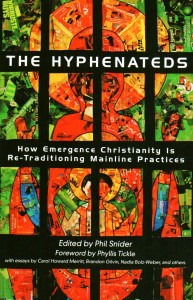

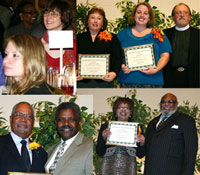
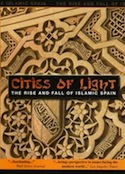 by Robert Gardner, producer/director
by Robert Gardner, producer/director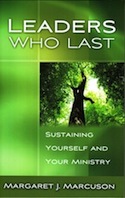 by Margaret J. Marcuson, Author
by Margaret J. Marcuson, Author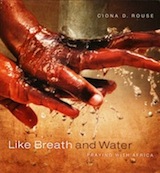 by Ciona D. Rouse, Author
by Ciona D. Rouse, Author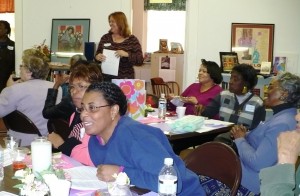 My home base for ministry is in former classrooms on a seminary campus. There is a place to view videos and a children’s corner, tables and chairs here and there, and shelves everywhere. On the shelves are curriculum and periodicals, puppets and games, videos and DVDs, an authentic Hebrew scroll in its satin cover – – books, of course, and periodicals. There are filing cabinets containing folders filled with the best clippings, articles and indispensable ideas gleaned over the years, several deep files for teaching pictures, a storage rack especially designed for us to contain our growing art collection – – and a wonderful old chest. Once that chest stored maps or blueprints, but now it is the ideal refugefor those large posters and vulnerable unframed prints we treasure.
My home base for ministry is in former classrooms on a seminary campus. There is a place to view videos and a children’s corner, tables and chairs here and there, and shelves everywhere. On the shelves are curriculum and periodicals, puppets and games, videos and DVDs, an authentic Hebrew scroll in its satin cover – – books, of course, and periodicals. There are filing cabinets containing folders filled with the best clippings, articles and indispensable ideas gleaned over the years, several deep files for teaching pictures, a storage rack especially designed for us to contain our growing art collection – – and a wonderful old chest. Once that chest stored maps or blueprints, but now it is the ideal refugefor those large posters and vulnerable unframed prints we treasure.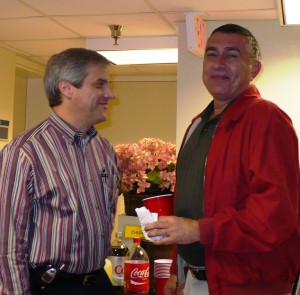 The pages of scripture are filled with wonderful stories of people being resources to one another, Ruth and Naomi, David and Jonathan, Jesus and his disciples. Then, when those disciples feared their most precious resource was lost, God sent the Holy Spirit – – a resource that could never be diminished or depleted, a resource that empowered them for ministry.
The pages of scripture are filled with wonderful stories of people being resources to one another, Ruth and Naomi, David and Jonathan, Jesus and his disciples. Then, when those disciples feared their most precious resource was lost, God sent the Holy Spirit – – a resource that could never be diminished or depleted, a resource that empowered them for ministry. We read and hear much about the “emerging Church” and the many ways in which we are rethinking Church in our time. Some folks, like best-selling novelist Anne Rice, are fed up with what they see as the refusal of Christians to take Christ’s teachings seriously, and they abandon institutional Christianity. Others simply settle into a cultural Christianity that Jesus wouldn’t recognize. Some, along with Rice, leave the Church and put their intellectual and spiritual energy into new directions – – e.g., house churches – – shunning the layers of tradition that address problems of other centuries, in favor or forms they see as more biblical, more faithful to Jesus’ vision.
We read and hear much about the “emerging Church” and the many ways in which we are rethinking Church in our time. Some folks, like best-selling novelist Anne Rice, are fed up with what they see as the refusal of Christians to take Christ’s teachings seriously, and they abandon institutional Christianity. Others simply settle into a cultural Christianity that Jesus wouldn’t recognize. Some, along with Rice, leave the Church and put their intellectual and spiritual energy into new directions – – e.g., house churches – – shunning the layers of tradition that address problems of other centuries, in favor or forms they see as more biblical, more faithful to Jesus’ vision.